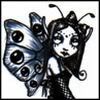Post by Ebony on Mar 7, 2006 8:21:44 GMT 1
I ran across the phrase “The Troth's Nine Virtues” today. Being a naïve beginner I have not heard of this before so searched the web for information. Here’s what I found for those who don’t already know what these virtues are and where they come from.
Troth is an organization within the culture of Heathenry. The Heathen codes of ethics are called the “Nine Noble Virtues.” These are:
Courage
Truth
Honor
Fidelity
Discipline
Hospitality
Industry
Self-Reliance
Perseverance
The Nine Noble Virtues is compared to the Wiccan Rede as a code of ethics.
“The Troth organization is dedicated to exploring, practicing and promoting the pre-Christian religion of the Germanic peoples, who include the English, Norse, Icelanders, Swedes and Germans, among others. This religion is known by various names, including Ásatrú, Heathenry, the Elder Troth, and others. Although there are many variations in beliefs and practices within this faith, and many ways of describing and classifying these differences, we all share a defining personal loyalty to, or "Troth" with, the gods and goddesses of the Northlands, such as Odin, Thor, Frigga, and many others; a deep respect for our Germanic religious, cultural and historical heritage; and a strong determination to practice the moral principles followed by our noble predecessors, including Courage, Truth, Honor, Loyalty, Discipline, Hospitality, Industriousness, Self-reliance, and Steadfastness.”
In modern Icelandic, Ásatrú is pronounced "AW sa tru" ("AW" as in "cow") with the accent on the first syllable. However, in English other pronunciations are also used. For example, many prefer the reconstructed Old Norse pronunciation, which would be "AH sa tru."
The Asatru/heathen beliefs are based on
-the gods and goddesses of Asatru
-other beings we honor (e.g., land-spirits)
-the main rituals of Asatru (blót and sumbel)
-the concept of Wyrd ("fate")
-Heathen ideas about the soul and afterlife
-the modern Heathen community - its ideals, organizations, and differences
-types of magic practiced by some Asatruar
My information came from:
www.asatru-u.org/beginner/asau-beginner-outline.htm
Troth is an organization within the culture of Heathenry. The Heathen codes of ethics are called the “Nine Noble Virtues.” These are:
Courage
Truth
Honor
Fidelity
Discipline
Hospitality
Industry
Self-Reliance
Perseverance
The Nine Noble Virtues is compared to the Wiccan Rede as a code of ethics.
“The Troth organization is dedicated to exploring, practicing and promoting the pre-Christian religion of the Germanic peoples, who include the English, Norse, Icelanders, Swedes and Germans, among others. This religion is known by various names, including Ásatrú, Heathenry, the Elder Troth, and others. Although there are many variations in beliefs and practices within this faith, and many ways of describing and classifying these differences, we all share a defining personal loyalty to, or "Troth" with, the gods and goddesses of the Northlands, such as Odin, Thor, Frigga, and many others; a deep respect for our Germanic religious, cultural and historical heritage; and a strong determination to practice the moral principles followed by our noble predecessors, including Courage, Truth, Honor, Loyalty, Discipline, Hospitality, Industriousness, Self-reliance, and Steadfastness.”
In modern Icelandic, Ásatrú is pronounced "AW sa tru" ("AW" as in "cow") with the accent on the first syllable. However, in English other pronunciations are also used. For example, many prefer the reconstructed Old Norse pronunciation, which would be "AH sa tru."
The Asatru/heathen beliefs are based on
-the gods and goddesses of Asatru
-other beings we honor (e.g., land-spirits)
-the main rituals of Asatru (blót and sumbel)
-the concept of Wyrd ("fate")
-Heathen ideas about the soul and afterlife
-the modern Heathen community - its ideals, organizations, and differences
-types of magic practiced by some Asatruar
My information came from:
www.asatru-u.org/beginner/asau-beginner-outline.htm


